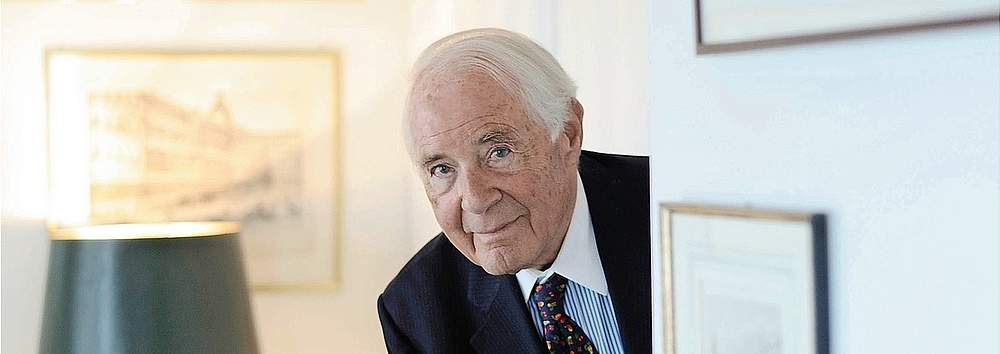
Stress busters: How to help employees help themselves
Dr. Rachel Lewis explores how empowering teams to co-create solutions can reduce workplace stress and boost wellbeing...

Published August 29, 2024 in Human Resources • 11 min read
The statistics show that, on any given day, more than 20% of Americans come to work with a diagnosed mental illness, a figure likely also seen in many other countries. So, what can leaders do to help combat what seems to be an epidemic of work-related stress? Columbia Business School Professor Rita McGrath, a best-selling author and leading expert on strategy and innovation, says leaders can do five things to make work better for our mental health.
Revenues went up 33% when people were working fewer hours. It’s not rocket science – healthier, happier, more engaged employees are more productive.
Drawing on the recent book Broken: How Our Social Systems are Failing Us and How We Can Fix Them by President of Southern New Hampshire University Paul LeBlanc, the first injunction is to keep humans at critical touch points at every stage when you try to scale any system. “It’s easy to make mental health a central concern when there’s just a few of you,” McGrath says, “But once you scale up to several hundred or a thousand people and more, you risk losing the human dimension. That’s because scaled systems hate humanity – they love precision and replication and abhor essentially human qualities such as messiness and imperfection.” So, standardize everything you can, but use humans for everything else. That way, when issues arise, they are dealt with humanely.
McGrath’s second piece of strategic advice, which stems from the work of entrepreneur and author Keith Ferrazzi and others, is to be very intentional about building team processes to make teams cohere better. Whether team members are remote or physically together, make sure to talk to them on a personal basis regularly. “For example, once a month, stop everything, take an hour, and just go around your team, and you ask, ‘How are you? What’s going on with you?’ Put the schedule on hold for a moment and take a breath together. Being intentional and taking control this way can help a team cohere much more effectively.”

“We are all very motivated when we feel we have ownership of something or ownership over what we do. We feel pride when we sense that we are aligned around something that’s shared and important”- Rita McGrath
The next item on the agenda is to give people a sense of ownership over what they do. “We are all very motivated when we feel we have ownership of something or ownership over what we do. We feel pride when we sense that we are aligned around something that’s shared and important,” McGrath argues. She cites the example of Pete Stavros, who pioneered an innovative employee engagement and ownership model at private equity firm KKR. The approach has been successfully implemented at several companies and has positively impacted tens of thousands of employees. Stavros’ KKR colleague Nate Taylor said of the approach: “We have seen firsthand the benefits of this model. Investing in the workforce by introducing broad-based ownership and engagement programs is good for employees and businesses. If applied at a larger scale, programs that seek to align the interests of all employees can lead to greater financial inclusion, worker satisfaction, and financial returns for all stakeholders.”
For her next piece of leadership advice, McGrath draws on Zeynep Ton’s concept of good jobs. Essentially, this means organizations should stop thinking about human beings as centers of cost but rather as centers of growth. She urges, “Think about what makes a good job system – living wages, stable schedules, and strong hiring, training, and performance management – and follow Zeynep Ton’s four principles in creating good jobs: focus and simplify, standardize and empower, cross-train and – arguably most important of all for mental health – operate with slack, so people aren’t strung so tightly that they might snap at any moment and have time for learning. If you create good jobs in this way, it can drive your top line.”
To break this natural tendency, we need to put structural mechanisms in place.
As McGrath points out, we all know what causes people to be burned out – too much work, no control over what we do, toxic bosses, lack of due recognition and rewards, no match with our values, and so on – and we know how to create mentally safe workplaces that are good to work in, but for some reason, we don’t get it nearly as much as we should. To break this natural tendency, we need to put structural mechanisms in place. We tend to flock to people we already know and empower people who are like us – by recruiting in our own image, for example, which, of course, leads to bias. To break this phenomenon, we need processes that systematically combat bias, such as using algorithms to help in decisions around recruitment and promotion rather than personal choice – something that is increasingly easy to do, given the ready availability of comparatively cheap tools.
As the globally recognized pioneer of the four-day week movement, innovator, entrepreneur, and philanthropist Andrew Barnes has made a career of market-changing innovation and industry digitization. However, the idea behind the four-day week came not from the disinterested pursuit of work-life balance, but from the attempt “to work out how I could make my company more productive.” Through a very simple experiment – offering his employees the choice to deliver the same output in four days rather than five – he found that employee engagement scores went up 40%, stress levels plummeted, sick days halved, and more people said they were able to do their job better working four days rather than five and the experiment soon morphed into the four-day week movement.
Proof of this increased productivity comes from pilot programs for SMEs in the US and the UK, which showed that revenues went up 33% over a period when people were working fewer hours. “It’s not rocket science – healthier, happier, more engaged employees are more productive,” says Barnes.
Key to the strategy is that it is a gift offered to employees and not a matter of right, so there is a mutual responsibility between the organization and the employee: “I’m treating my employees as adults,” Andrew Barnes adds. “They are responsible for rethinking how they do their job because they know their job better than you do. And they know the things that are stopping them from being productive. Equally, they know what stops their colleagues from being productive. This works because it’s not just an individual goal; it’s a team goal. It’s got to be a mutual win-win. The real issue here is about rethinking what leadership is. It isn’t about dictating how people do things – it’s about empowering them to think for themselves. The biggest question is not whether to do a four-day week or not – it’s whether your biggest competitor does it first.”
The biggest impediment to such a change is the leadership team. Barnes believes they must rethink how they approach things. “The only people for whom I made it compulsory to work a four-day week was my leadership team – they had to walk the talk. You’ve got to change the culture to reflect what everybody wants in the organization.”
Decades of research show that when people are treated unfairly or when they experience discrimination, it has a huge impact on stress disorders such as anxiety and depression, but the kind of help that people get when it comes to addressing such concerns varies.
Poornima Luthra, Associate Professor at Copenhagen Business School and author of The Art of Active Allyship: 7 Behaviours to Empower You to Push The Pendulum Towards Inclusion At Work and co-author of Leading Through Bias, cautions that, to make work better for everyone’s mental health, it’s important to keep in mind who “everyone” is: “Work isn’t experienced in the same way by people who come from marginalized communities and groups, and this is across a range of intersectional identities – gender, sexual orientation, disabilities, neurodiversity, age, race, ethnicity, religion, socioeconomic background and so on.”
Decades of research show that when people are treated unfairly or when they experience discrimination, it has a huge impact on stress disorders such as anxiety and depression, but the kind of help that people get when it comes to addressing such concerns varies. Marginalized ethnic communities and the LGBTQ+ community, for example, don’t get the kind of support that “mainstream” groups do.
To tackle this inequity and discrimination, Luthra says we need to create fair spaces where everyone can show up as themselves and not mask a part of their identity to fit in with the dominant norms. They also need to feel a sense of belonging because that reduces stress and anxiety.
To ensure our organizations are truly inclusive, Luthra argues, we need to “get down to the core of both the system side of it and the cultural side of it” and look at system structures because bias is embedded across the entire employee lifecycle in hiring practices.
She points out that there are “very practical things that can be done to make sure that we’re creating spaces where we can show up as ourselves.” These include flexible working options, parental leave, gender-neutral bathrooms, quiet spaces, and booths where people can work in a space where they’re comfortable and don’t have sensory overload. “Things like that create spaces where intersectional identities feel like they don’t need to cover up, and that reduces the stress that people are experiencing. We need to pay a lot more attention to what kind of workplace environments we create so that we’re able to make sure that, for example, neuro-divergent individuals can thrive. We often think about these things as benefitting people from marginalized groups, but they benefit all of us.”
Instead, try to understand how someone might experience the same environment in a way that causes them stress but doesn’t cause you stress.
Luthra uses the concept of active allyship to create spaces where work is not better only for the mental health of certain people or groups, but where “everybody gets to thrive, and everybody gets to have an environment where their mental health is protected.”
The Art of Active Allyship identifies seven behaviors conducive to better mental health in the workplace, including empathetic engagement. “We’ve created an environment around us where there’s so much toxicity associated with creating these inclusive spaces that we’re all very scared,” Luthra says, “But what it takes is very simple. Empathy is so important.”
“The next time you hear someone at work saying something that could be harmful to an individual or community, take them aside and ask, ‘Tell me where you’re coming from.’ And listen without needing to respond. Instead, try to understand how someone might experience the same environment in a way that causes them stress but doesn’t cause you stress. There are ways in which we can have those rich conversations, and it brings teams closer together. It makes us appreciate our environment, and it helps us nurture a better space for each other. A lot of research shows that inclusive organizations are more resilient, and they’re resilient because inclusive cultures mean that we are creating psychologically safe environments.”
This article was developed in collaboration with Thinkers50 from their Mind Matters series of conversations between leading experts in the field of mental well-being at work.

Speaker, workplace mental-health consultant, and author Morra Aarons-Mele helps leaders and teams turn anxiety into a superpower to lead at their highest level. An anxious achiever herself, Morra believes taking mental health seriously is a leadership strength. Recognized by Mental Health America with their Media Award (2023), she is also a LinkedIn “Top 10 Voice” in mental health and a Thinkers50 2023 Distinguished Achievement in Leadership Award nominee. Morra’s clients include Fortune 500 companies, startups, and U.S. government agencies. She hosts the Top 10 Management podcast “The Anxious Achiever” for LinkedIn Presents, featuring CEOs, psychologists, and leadership experts. This podcast is a Webby Awards Honoree and “Best Commute” Signal Award winner.

Andrew Barnes, founder of Perpetual Guardian, New Zealand’s largest corporate trustee company, gained global attention in 2018 with his four-day workweek experiment. He co-founded 4 Day Week Global with Charlotte Lockhart, leading the largest global trials involving 250+ companies in the UK, US, Canada, South Africa, Ireland, Australia, and New Zealand, supported by research from Boston College, Oxford, and Cambridge. Andrew advises governments on future work models, sits on advisory boards for the US and Ireland 4 Day Week campaigns, and the Wellbeing Research Centre at Oxford University. He is also a founding member of the World Wellbeing Movement.

Dr. Luthra, Associate Professor at Copenhagen Business School, is an author, speaker, and consultant specializing in talent management and Diversity, Equity, and Inclusion (DEI). She wrote "Leading Through Bias" (2023), "The Art of Active Allyship" (2022), and "Diversifying Diversity" (2021), and contributes to Harvard Business Review. Ranked by Thinkers50 as a top 30 emerging management thinker in 2023, she also won the Nordic Blaze Inclusion Awards. Founder of TalentED Consultancy, she offers DEI thought-leadership, workshops, and consultancy, focusing on diversity, active allyship, and inclusive leadership. Clients include Lego, SAP, Carlsberg, KPMG, FedEx, and Amazon Web Services and Doctors without Borders.

Rita McGrath is a best-selling author, sought-after speaker, and professor at Columbia Business School. An expert in innovation and growth during uncertainty, she received the #1 strategy award from Thinkers50 and is consistently ranked among the world’s top 10 management thinkers. Her consulting work impacts Fortune 500 companies globally. Rita authored "The End of Competitive Advantage" and "Seeing Around Corners," among other influential books. She speaks at major events like the Global Peter Drucker Forum. She holds a Ph.D. from Wharton School (University of Pennsylvania) and has degrees from Barnard College and Columbia's School of International and Public Affairs.

June 23, 2025 • by Rachel Lewis in Human Resources
Dr. Rachel Lewis explores how empowering teams to co-create solutions can reduce workplace stress and boost wellbeing...

May 13, 2025 • by Luca Condosta in Human Resources
The CDO, formerly a figurehead for regulatory compliance, is now a key driver of company strategy. Luca Condosta describes the essential skills that CDOs require to turn DE&I concepts into actual commercial...

April 30, 2025 • by Manju Ahuja in Human Resources
The pandemic sparked a shift to remote work that’s proving hard to reverse. According to Prof. Manju Ahuja, hybrid models are the new norm—driven by employee expectations, technological advances, and a changing...

April 29, 2025 • by Michael D. Watkins in Human Resources
Use this diagnostic tool and roadmap to rebuild trust and confidence within dysfunctional teams – the first crucial steps toward a future of high performance....
 Audio available
Audio availableExplore first person business intelligence from top minds curated for a global executive audience